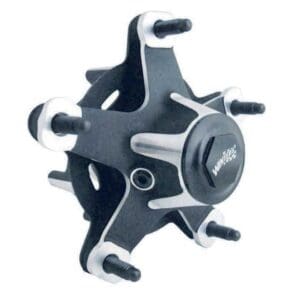TPMS Sensors: Your Ultimate Guide to Tire Pressure Safety
Tire Pressure Monitoring Systems (TPMS) are critical for ensuring your vehicle’s tires are properly inflated, enhancing your safety and fuel efficiency. This comprehensive guide dives deep into the workings of TPMS sensors, their types, benefits, and maintenance tips.
Importance of TPMS Sensors for Vehicle Safety
TPMS sensors play a pivotal role in maintaining correct tire pressure, significantly reducing the risk of tire-related accidents. As a result by providing real-time alerts about under-inflated tires, TPMS sensors ensure that your vehicle maintains optimal performance and fuel efficiency.
Learn more about tire safety from the National Highway Traffic Safety Administration (NHTSA).
Types of TPMS Sensors
- Direct TPMS: Direct systems feature sensors inside each tire to monitor pressure levels accurately. These systems provide precise measurements and can alert you to even minor deviations in tire pressure.
Understanding Direct TPMS and Their Benefits
- Indirect TPMS: Unlike their direct counterparts, indirect systems use wheel speed data from the anti-lock braking system (ABS) to infer tire pressure. This cost-effective solution is widely used but may require recalibration after tire rotations or replacements.
Explore Indirect TPMS Advantages
Maximizing the Benefits of Your TPMS
Ensuring your TPMS works correctly involves regular checks and maintenance. Here are some tips to keep your system functioning optimally:
- Regularly verify tire pressure manually to confirm TPMS accuracy.
- Be mindful of the sensor batteries in a direct TPMS, which may need replacement after several years.
- Inform tire service technicians about the presence of TPMS sensors to prevent accidental damage.
TPMS Maintenance and Safety Tips
Maintaining your TPMS is crucial for vehicle safety. Follow these guidelines to ensure your system remains effective:
- Check Your TPMS Regularly: A routine check can help detect any issues early.
- Know Your System: Understanding whether your vehicle has a direct or indirect TPMS can influence how you maintain tire pressure.
Click here for a detailed TPMS maintenance guide.
Enhancing Your Driving Experience with TPMS Sensors
TPMS sensors not only contribute to safer driving conditions but also help in conserving fuel and extending tire life. By staying informed about your tire pressure, you can enjoy a smoother, more economical driving experience.
The Future of Tire Safety
Lastly, As automotive technology advances, the integration of TPMS sensors in vehicles continues to evolve. Future enhancements may offer even more precise measurements and easier maintenance solutions, further improving vehicle safety and performance.
Conclusion
In conclusion, TPMS sensors are indispensable for modern driving, providing critical alerts that ensure tire safety and efficiency. By understanding and maintaining your TPMS, you can significantly enhance your driving experience and safety on the road.
For further reading on TPMS sensors and tire safety, consider visiting the Tire Industry Association.











